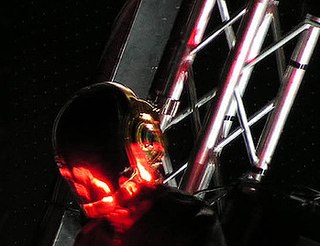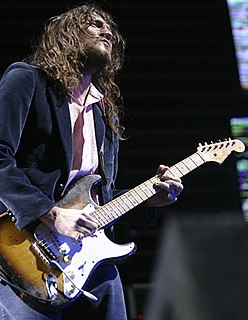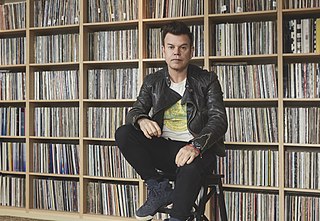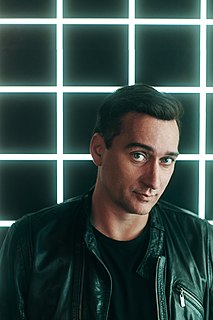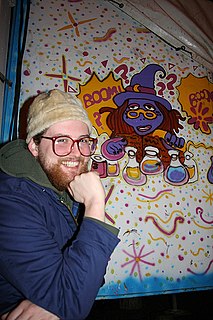A Quote by Jean-Michel Jarre
I used to play in rock bands. Then I went to the first school of electronic music in the world. It was in Paris headed by one of the most important people involved in electronic music.
Related Quotes
In some ways it's hard to see electronic music as a genre because the word "electronic" just refers to how it's made. Hip-hop is electronic music. Most reggae is electronic. Pop is electronic. House music, techno, all these sorts of ostensibly disparate genres are sort of being created with the same equipment.
I'm trying to fly the flag for the days of electronic music where people who are making it are also building the gear because that was what was happening in the very early days of electronic music. And that spirit is one of the things that really appeals to me about electronic music so I'm putting this forward as a way to keep that.
People always focus on people like me who use synthesizers, right, which are explicitly electronic and therefore obvious. "Ah, yes, that's electronic music." But they don't realize that so is the concept of actually taking a piece of extant music and literally re-collaging it, taking chunks out and changing the dynamics radically and creating new rhythmic structures with echo and all that. That's real electronic music, as far as I'm concerned.
With the violin, for example, one understands culturally that the sound comes from the instrument that can be seen. With electronic music, it is not the same at all. That's why it seemed so important to me, from the beginning of my career, to invent a grammar, a visual vocabulary adapted to electronic music.
It's very strange how electronic music formatted itself and forgot that its roots are about the surprise, freedom, and the acceptance of every race, gender, and style of music into this big party. Instead, it started to become this electronic lifestyle which also involved the glorification of technology.
The place of electronic music, culturally and socially, is today completely different - it is now everywhere, and it has been totally accepted. Consequently, there is now a younger generation that is more focused on making great electronic music, good parties, and having fun, where there is not any more so much need for cultural and ideological statements in electronic music itself.





